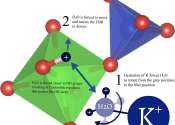PLoS ONE is an open access peer-reviewed scientific journal published by the Public Library of Science (PLoS) since 2006. It covers primary research from any discipline within science and medicine. All submissions go through an internal and external pre-publication peer review but are not excluded on the basis of lack of perceived importance or adherence to a scientific field. The PLoS ONE online platform has post-publication user discussion and rating features.
PLoS ONE was launched in December 2006 as a beta version. It launched with Commenting and Note making functionality, and added the ability to rate articles in July 2007. In September 2007 the ability to leave "trackbacks" on articles was added. In August 2008 it moved from a weekly publication schedule to a daily one, publishing articles as soon as they became ready. In October 2008 PLoS ONE came out of "beta". Also in September 2009, as part of its "Article-Level Metrics" program, PLoS ONE made the full online usage data for every published article (HTML page views, PDF, and XML downloads) publicly available.
- Publisher
- Public Library of Science
- History
- 2006--present
- Website
- http://www.plosone.org/
- Impact factor
-
4.411
(2010)
Some content from Wikipedia,
licensed under CC BY-SA









